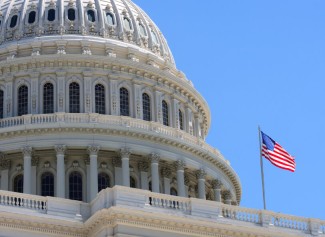As President Biden and Congress consider proposals this year to tackle the climate crisis, a new survey shows broad bipartisan support for energy efficiency measures, notably stronger energy-saving standards for vehicles, appliances, and new homes and buildings.
About 80% or more of U.S. registered voters support several Biden-backed policies, with support highest among liberal Democrats but with backing from at least 50% of conservative Republicans. These policies include tax incentives or rebates to homeowners, landlords, and businesses to make existing buildings more energy efficient (88% overall) or to buy electric appliances (80%), rebates to people who buy energy-efficient vehicles (82%) as well as stronger energy or fuel efficiency standards for new buildings (86%), appliances (83%), and cars, trucks, and SUVs (78%).
“Most registered voters support policies to reduce energy use and improve efficiency,” said the post-election survey of 1,036 registered voters that was released earlier this month by the Yale Program on Climate Change Communication and the George Mason University Center for Climate Change Communication.
President Biden, who unveiled an ambitious $2 trillion climate plan with several energy efficiency proposals during the campaign, has already taken steps to undo President Trump’s environmental legacy.
On his first day in office last week, Biden signed an executive order that directed federal agencies to review and consider suspending, revising or reversing many rules enacted over the past four years. Among them are Trump’s rollback of energy or fuel-saving standards for vehicles, buildings, and appliances such as those for washers and dryers and light bulbs.
Today, in an additional executive order, the White House directed federal agencies to make climate action a central focus of their efforts, promote environmental justice in their work, push to develop a zero-emissions power sector by 2035, and buy zero-emission vehicles for their fleets.
The survey, conducted between Dec. 3 and 16, shows Biden and Congress would have the public’s strong support to expand clean energy and address the climate challenge. In other results, a slight majority of U.S. registered voters (53%) said global warming should be a high or very high priority and two-thirds (66%) said developing clean energy sources should be a high or very high priority. Three out of four voters (75%) favor U.S. participation in the Paris Climate Agreement, which Biden said the United States would rejoin.
Energy efficiency drew more across-the board political support than many other clean energy and climate policies queried. The survey shows backing for several energy efficiency policies that ACEEE has analyzed and supports because of their ability to create jobs, save money, reduce pollution, protect health, and reduce greenhouse gas emissions. President Biden can implement some of them and additional ones on his own, but others will require approval and funding from Congress.
Biden’s second climate plan, released last summer, called for energy-efficient retrofits of four million commercial buildings and weatherization of two million homes over four years. It proposed building performance standards, strict building codes as well as cash rebates and low-cost financing to upgrade and electrify home appliances and install more efficient windows. It also proposed ambitious fuel economy standards and consumer rebates to swap old, less energy-efficient vehicles for newer, more efficient ones. Biden said he would promote electric vehicles and invest in 500,000 EV charging stations.
Biden is expected to send an infrastructure package to Congress this spring that will include energy efficiency and other clean energy measures.



